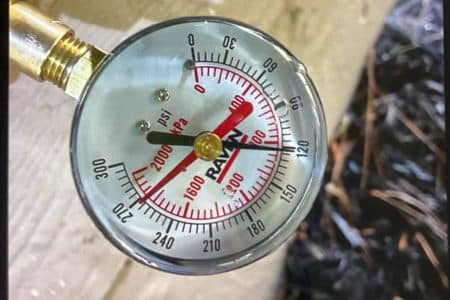Most Common Plumbing Issues and When to Call a Plumber
When a plumbing issue pops up, many homeowners instinctively reach for the toolbox to try and fix it themselves. But with plumbing problems, it’s important to know how to spot what’s really going on, which fixes are safe to try, and when it’s time to call in a professional. To make it easier, we’ve outlined the most common plumbing problems and what you should know about each one.
1. Leaks – Pipes, Fixtures and Water Heaters
Leaks are one of the most frequent plumbing problems homeowners face. They can take many forms: a faucet that drips day and night, a pipe that seeps under the sink, a toilet that runs endlessly, or even a water heater that starts to leak. While some leaks are obvious, others can be hidden inside walls or under slabs, where they cause damage long before they’re detected.
Beyond wasting water and raising your bill, leaks can ruin flooring, drywall, and personal belongings. Sometimes the cause is as simple as a worn washer or flapper valve, but other times it’s corrosion, faulty seals, or aging equipment. Because leaks can escalate quickly, professional leak detection and repair are often the safest way to protect your home.
2. Clogs – Clogged Drains, Toilets, and Sewer Lines
The second most common of possible plumbing problems are clogs. We get calls for help with plumbing problems like backed-up toilets or slow draining sink drains every day. Because we carefully plan our positioning and capacity, we can normally help solve these problems the same day you call.
In some cases, a plunger or hand auger is enough to clear the blockage, but deeper clogs caused by grease, hair, or even roots in outdoor lines require more advanced tools like sewer scopes or hydrojetting.
Simple clogged sink or shower drains often can be cleared by anyone, but if the use of a drain weasle or drain cleaning liquid doesn’t help, it’s time to call a professional. Venting can also clog, which leads to gurgling sounds and sluggish drains throughout the house. When clogs become chronic, they’re often a symptom of a bigger issue that needs professional attention to prevent recurring backups.
3. Water Heater Problems
Few plumbing problems get noticed as quickly as a water heater that stops working. Cold showers, rumbling or popping noises from the tank, or a system that simply can’t keep up are common complaints. Traditional tank heaters can develop sediment buildup or worn-out heating elements, while tankless systems may have ignition or scaling issues. Age is another factor—most water heaters are designed to last 8 to 12 years, and performance tends to drop off toward the end of their lifespan. Regular maintenance, such as flushing a tank or descaling a tankless unit, can prevent many of these problems and extend the system’s life. When issues do come up, timely service or replacement restores comfort and efficiency.
A water heater can flood a home fast, and most fixes require an experienced professional. Water heaters involve venting dangerous gases and natural gas, or electricity. There’s a lot that can go wrong with a water heater repair or installation, and we highly recommend calling in the experts for these plumbing problems.
4. Pressure Problems

Water pressure that isn’t quite right is another category of plumbing problems we see often. Low pressure can make showers weak and dishwashers ineffective, while high pressure puts unnecessary strain on pipes, fixtures, and appliances. Sometimes the whole house is affected, while other times only a single fixture has the issue. Whistling or banging pipes can also be a clue that your pressure is not properly regulated. Causes range from clogged aerators to failing pressure regulating valves or issues with the municipal supply. Because incorrect pressure can shorten the life of your plumbing system, diagnosing and fixing the source is an important step in keeping things running smoothly.
5. Gas Line Leaks or New Gas Lines
Not all plumbing problems involve water—gas lines are part of the picture too. If you ever suspect a gas leak, the very first step is to leave the house immediately and call your gas company or 911 from a safe location. Once the area is secure, a licensed professional should be called to locate and repair the leak.
Beyond emergencies, gas line services are a common need for homeowners adding new appliances or remodeling. Running a new gas line for a water heater, stove, fireplace, or outdoor grill requires expertise to ensure the work is safe and up to code. Over time, gas lines can also wear out, develop leaks at connections, or corrode underground. Detecting and fixing these issues early protects your home and your family. Having an experienced plumber handle gas line installation and repairs means peace of mind that everything is working safely.
Aaron Plumbing | Trusted With Plumbing Problems Every Day
If you notice plumbing problems in your home, don’t ignore them—small issues can turn into big, costly repairs quickly. Start by checking for obvious signs like leaks under sinks, unusual noises in your pipes, or water that drains slowly. If it’s a minor problem you feel confident tackling safely, a simple DIY fix may work. But for persistent leaks, recurring clogs, water heater issues, or pressure problems, it’s best to call a professional. An experienced plumber can pinpoint the source of the problem and make the right repair, saving you time, money, and stress in the long run.

